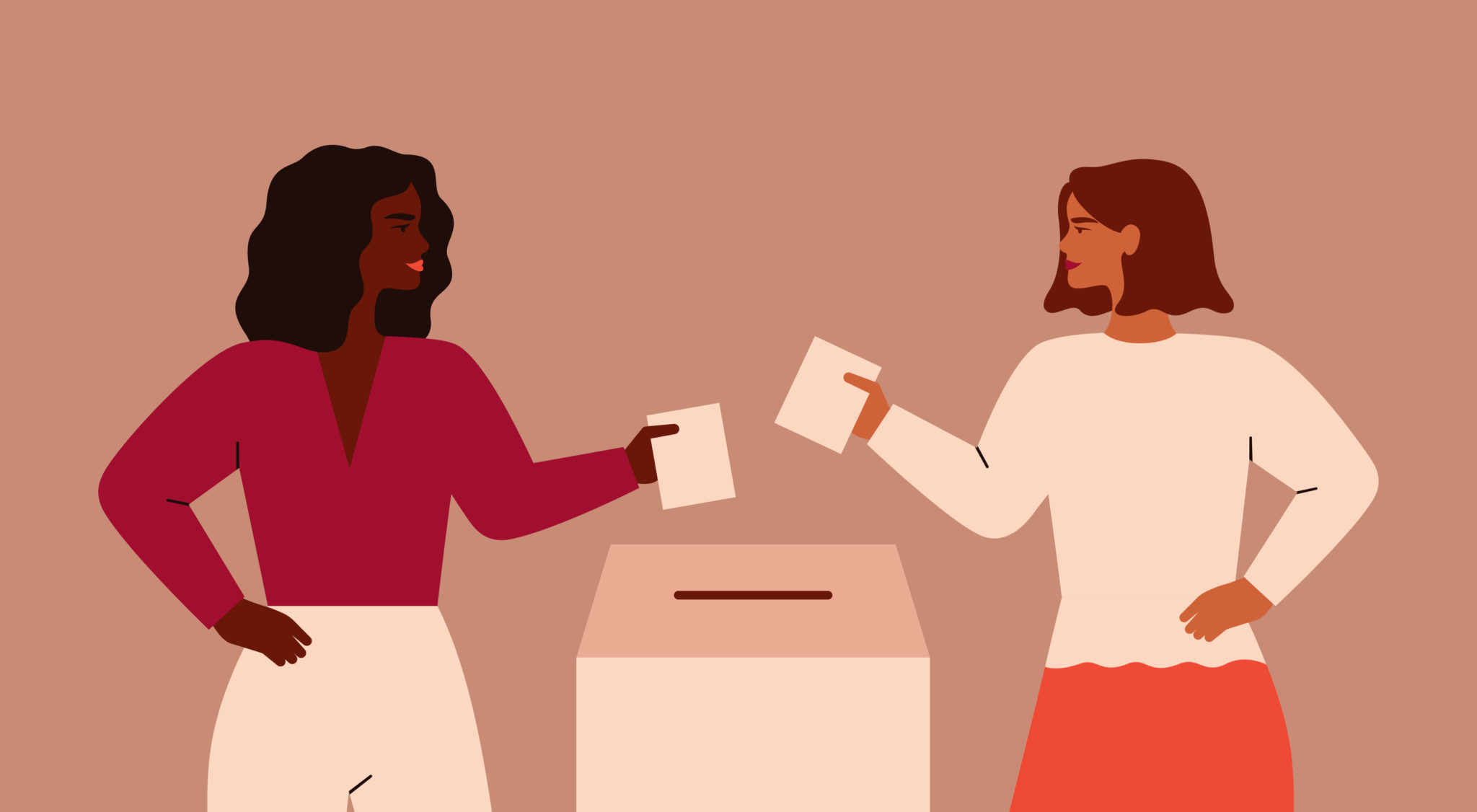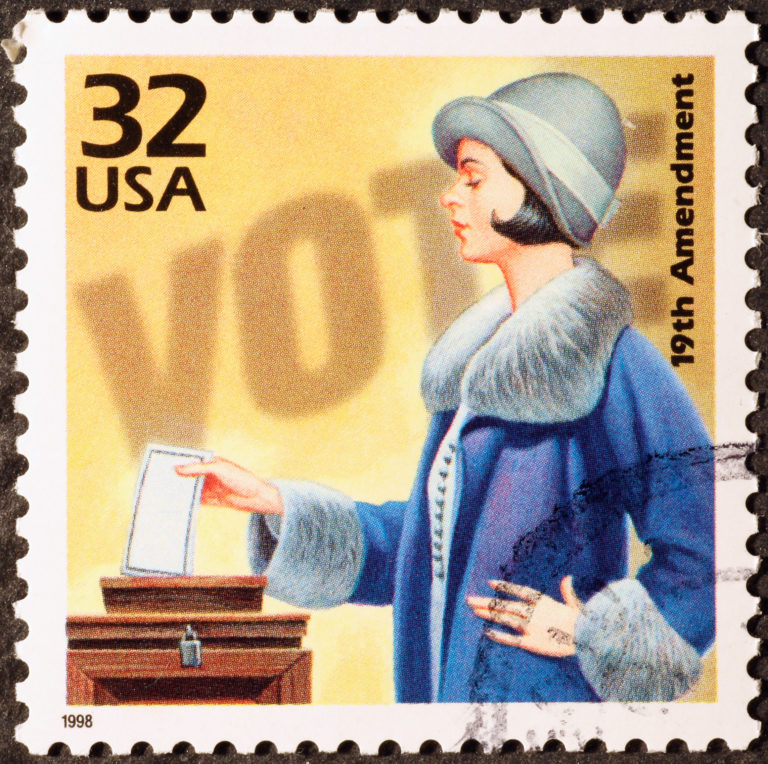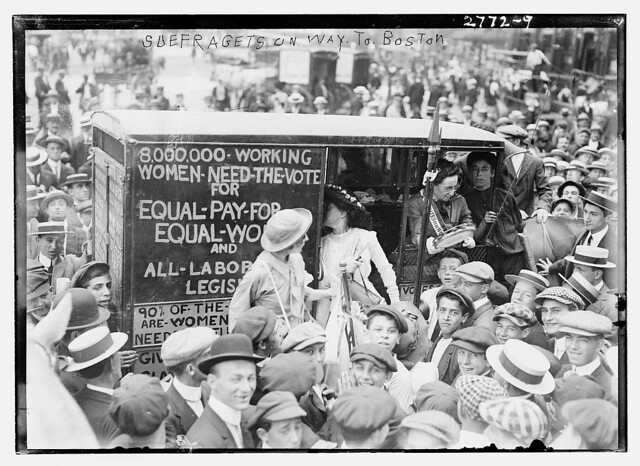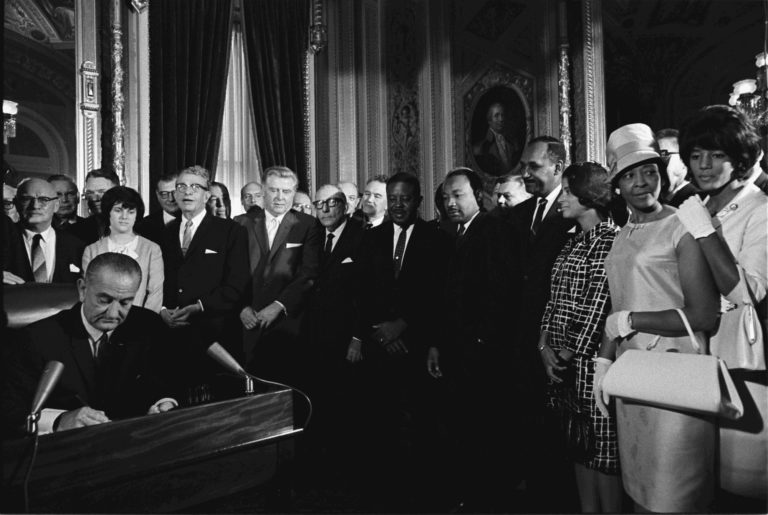This August marks the 100th anniversary of the passage of the 19th Amendment, which gave…
Suffrage at 100

On the eve of the suffrage centennial, women are at a crossroads in American politics. On one hand, there are more women than ever before in electoral office. After the 2018 midterm elections, for example, the US Congress grew to become a record-breaking one quarter women in both chambers, 38 percent of whom are women of color. But a quarter is far from gender parity, and this same gender imbalance is still evident in all branches of government from local city councils to state legislatures. Recent political gains are also tempered by women (and everyone) increasingly facing diminished voting access due to prohibitive voter ID laws, poll closures, gerrymandering, and false claims of voter fraud.
In the last one-hundred years since the ratification of the Nineteenth Amendment, the suffrage struggle has continued along two streams. First, women initiated a series of campaigns to achieve full political citizenship. Their goal was to translate voting power into true political power. Second, women of color and their allies have led a broad-based mobilization aimed at universal women’s suffrage—helping to move the vote beyond what initially amounted to a white women’s vote after the suffrage amendment was ratified, due to white supremacist and nativist disenfranchisement tactics.
Joe Biden’s historic selection of Senator Kamala Harris as the Democratic vice-presidential candidate, only the fourth woman on a major party presidential ticket in US history, reflects these interwoven efforts. Harris acknowledged this legacy in the first speech she gave on August 12 as the presumptive nominee. “I do so mindful of all the heroic and ambitious women before me whose sacrifice, determination and resilience makes my presence here today even possible,” Harris remarked.
So many of the “ambitious women” who laid out a path for Harris to become a US senator, run for president herself, and be nominated as Biden’s running mate were not politicians operating at the highest levels of American politics. Rather, they were unsung heroes who went to great lengths simply to vote.
One example is Rosanell Eaton, who lodged two major fights to vote as an African American woman in the years after the ratification of the Nineteenth Amendment in 1920. At age twenty-one, in 1942, Eaton rode two miles by wagon to the Franklin County Courthouse in Louisburg, North Carolina, to cast her first ballot. There, three white men told her she could vote only if she could recite the Preamble to the Constitution, and as her high school valedictorian, she did so effortlessly and thwarted this disenfranchisement tactic.
In 2013, at ninety-three years old, Eaton was tested again. This time, the name on her voter registration card—Rosanell Eaton—did not match the exact name on her driver’s license: Rosa Johnson Eaton. Getting the ID cards corrected took eleven trips to banks and government offices, a grueling process, especially at her age, that required traveling a few hundred miles and many hours.
After the ordeal, Eaton was so furious she decided to challenge the North Carolina law that had delivered these roadblocks. The Supreme Court struck down the law in 2017. It is women like Eaton—the continued suffrage sojourners—that we should celebrate on this centennial anniversary of the suffrage amendment, as we reflect on how far women have come, and how much more work remains.
Join the Women & Politics Institute’s “Women on Wednesdays” on August 26th at 7 PM ET to hear more from Leandra and Stacie. Details and registration here.






